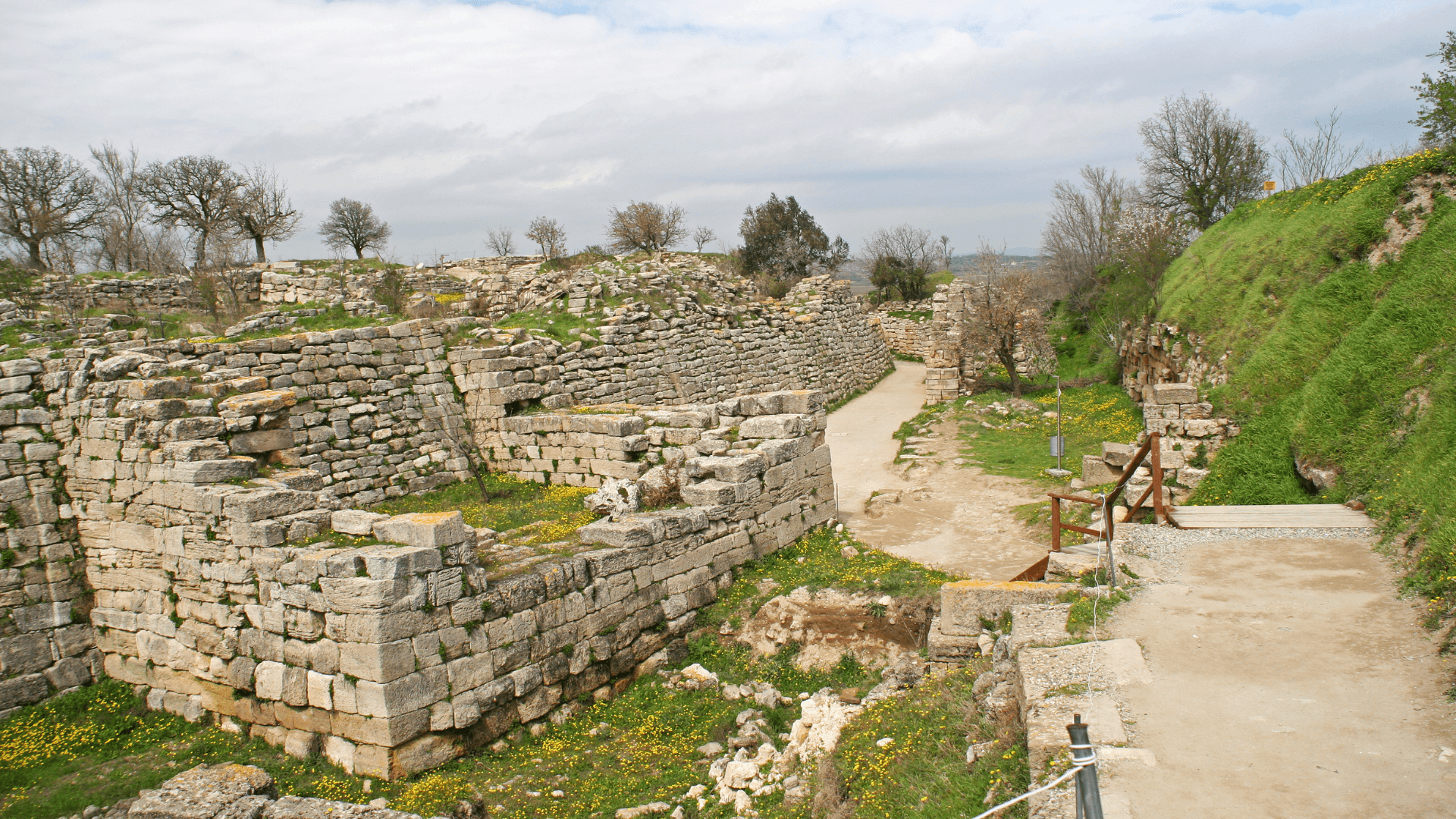Study Reveals That an Active Social Life Can Reduce Dementia Risk
Study Reveals That an Active Social Life Can Reduce Dementia Risk
Study Reveals That an Active Social Life Can Reduce Dementia Risk
Feb 4, 2025
Feb 4, 2025
Feb 4, 2025

Illustrative image. Credit: Getty Images via Canva.
Illustrative image. Credit: Getty Images via Canva.
Illustrative image. Credit: Getty Images via Canva.
Maintaining an active social life can reduce the risk of dementia by 38%, according to a new study. Discover how social interaction protects the brain.
Maintaining an active social life can reduce the risk of dementia by 38%, according to a new study. Discover how social interaction protects the brain.
Maintaining an active social life can reduce the risk of dementia by 38%, according to a new study. Discover how social interaction protects the brain.
A study conducted by Rush University Medical Center followed 1,923 elderly individuals, with an average age of eighty, as part of the Rush Memory and Aging Project—a long-term research initiative on aging. During the study, participants underwent annual evaluations, including medical history, cognitive tests, and questionnaires about their social interactions.
After five years of monitoring, researchers found that 545 individuals developed dementia, while 695 exhibited mild cognitive impairment (MCI).
Key Findings
The results indicated that fewer social elderly individuals were diagnosed with dementia, on average, five years earlier than those who maintained an active social life. A lack of interactions seems to accelerate cognitive decline, making the brain more susceptible to disease development.
Moreover, participants who engaged more frequently in social activities had a 38% lower risk of developing dementia and a 21% lower risk of mild cognitive impairment (MCI). These findings suggest that socialization may play a significant protective role in brain health.
Why Does Social Life Protect the Brain?
Social interaction strengthens neural connections, increasing the brain's resilience to aging. Activities involving conversation, strategic decision-making, and games stimulate essential cognitive functions, helping to preserve memory and reasoning. During interactions, brain areas associated with cognition activate, which may delay mental deterioration.
Potential Impacts and Benefits
Delaying the progression of dementia by five years could increase of up to three years in life expectancy. This impact reinforces the importance of habits that stimulate the brain and promote social interaction.
In addition to individual benefits, greater social engagement among older adults could lead to a 40% reduction in medical costs associated with dementia over the next three decades, representing savings of up to US$500,000 per person who avoids developing the disease.
In light of such findings, encouraging social interaction may be an effective public health strategy for preventing dementia. Initiatives that promote group activities and strengthen social bonds could be crucial for preserving cognition in older adults.
Limitations and Future Research Perspectives
Although the study identified a significant relationship between an active social life and a lower risk of dementia, it does not establish a cause-and-effect relationship. Long-term controlled studies are needed to assess whether specific social interventions can effectively prevent or delay the disease.
—
Learn more about this study and its implications in the original article from Rush University.
A study conducted by Rush University Medical Center followed 1,923 elderly individuals, with an average age of eighty, as part of the Rush Memory and Aging Project—a long-term research initiative on aging. During the study, participants underwent annual evaluations, including medical history, cognitive tests, and questionnaires about their social interactions.
After five years of monitoring, researchers found that 545 individuals developed dementia, while 695 exhibited mild cognitive impairment (MCI).
Key Findings
The results indicated that fewer social elderly individuals were diagnosed with dementia, on average, five years earlier than those who maintained an active social life. A lack of interactions seems to accelerate cognitive decline, making the brain more susceptible to disease development.
Moreover, participants who engaged more frequently in social activities had a 38% lower risk of developing dementia and a 21% lower risk of mild cognitive impairment (MCI). These findings suggest that socialization may play a significant protective role in brain health.
Why Does Social Life Protect the Brain?
Social interaction strengthens neural connections, increasing the brain's resilience to aging. Activities involving conversation, strategic decision-making, and games stimulate essential cognitive functions, helping to preserve memory and reasoning. During interactions, brain areas associated with cognition activate, which may delay mental deterioration.
Potential Impacts and Benefits
Delaying the progression of dementia by five years could increase of up to three years in life expectancy. This impact reinforces the importance of habits that stimulate the brain and promote social interaction.
In addition to individual benefits, greater social engagement among older adults could lead to a 40% reduction in medical costs associated with dementia over the next three decades, representing savings of up to US$500,000 per person who avoids developing the disease.
In light of such findings, encouraging social interaction may be an effective public health strategy for preventing dementia. Initiatives that promote group activities and strengthen social bonds could be crucial for preserving cognition in older adults.
Limitations and Future Research Perspectives
Although the study identified a significant relationship between an active social life and a lower risk of dementia, it does not establish a cause-and-effect relationship. Long-term controlled studies are needed to assess whether specific social interventions can effectively prevent or delay the disease.
—
Learn more about this study and its implications in the original article from Rush University.
A study conducted by Rush University Medical Center followed 1,923 elderly individuals, with an average age of eighty, as part of the Rush Memory and Aging Project—a long-term research initiative on aging. During the study, participants underwent annual evaluations, including medical history, cognitive tests, and questionnaires about their social interactions.
After five years of monitoring, researchers found that 545 individuals developed dementia, while 695 exhibited mild cognitive impairment (MCI).
Key Findings
The results indicated that fewer social elderly individuals were diagnosed with dementia, on average, five years earlier than those who maintained an active social life. A lack of interactions seems to accelerate cognitive decline, making the brain more susceptible to disease development.
Moreover, participants who engaged more frequently in social activities had a 38% lower risk of developing dementia and a 21% lower risk of mild cognitive impairment (MCI). These findings suggest that socialization may play a significant protective role in brain health.
Why Does Social Life Protect the Brain?
Social interaction strengthens neural connections, increasing the brain's resilience to aging. Activities involving conversation, strategic decision-making, and games stimulate essential cognitive functions, helping to preserve memory and reasoning. During interactions, brain areas associated with cognition activate, which may delay mental deterioration.
Potential Impacts and Benefits
Delaying the progression of dementia by five years could increase of up to three years in life expectancy. This impact reinforces the importance of habits that stimulate the brain and promote social interaction.
In addition to individual benefits, greater social engagement among older adults could lead to a 40% reduction in medical costs associated with dementia over the next three decades, representing savings of up to US$500,000 per person who avoids developing the disease.
In light of such findings, encouraging social interaction may be an effective public health strategy for preventing dementia. Initiatives that promote group activities and strengthen social bonds could be crucial for preserving cognition in older adults.
Limitations and Future Research Perspectives
Although the study identified a significant relationship between an active social life and a lower risk of dementia, it does not establish a cause-and-effect relationship. Long-term controlled studies are needed to assess whether specific social interventions can effectively prevent or delay the disease.
—
Learn more about this study and its implications in the original article from Rush University.
Compartir en:
Compartir en:
Ver También
Ver También

DeepSeek AI: el chatbot chino que está sacudiendo el mercado global
Feb 7, 2025

Estudio revela que la vida social activa puede reducir el riesgo de demencia
Feb 4, 2025

Año nuevo lunar 2025: la llegada del año de la serpiente
Jan 30, 2025

Nueva hipótesis sobre el origen de los dinosaurios desafía conceptos tradicionales
Jan 27, 2025

Colapso de la plataforma de hielo Conger: alerta para la Antártida Oriental
Dec 20, 2024

Emociones y el cuerpo humano: conexiones milenarias en textos neoasirios
Dec 20, 2024

Un estudio relaciona la contaminación atmosférica con el riesgo de tromboembolia venosa
Dec 20, 2024

Ambiente potencialmente habitable en Marte descubierto por Perseverance
Dec 20, 2024

Revolución XRISM: Nuevos descubrimientos sobre agujeros negros supermasivos
Oct 15, 2024

Estudio aponta que la duplicación del gen AMY1, relacionado con la digestión del almidón, precede a la agricultura
Oct 14, 2024

Nacimientos en la UE caen por debajo de los 4 millones por primera vez desde 1960
Oct 11, 2024

Excavación en Dinamarca revela 50 esqueletos Viking increíblemente preservados
Oct 10, 2024

Estudio detecta mayor incidencia de asma y rinitis alérgica en personas nacidas en otoño e invierno en Finlandia
Oct 9, 2024

Estudio señala similitudes entre la pubertad de adolescentes de la Edad de Hielo y jóvenes modernos
Oct 8, 2024

Análisis de ADN en momias chinas de 3.600 años revela el queso más antiguo del mundo
Oct 7, 2024

Estudio revela estabilidad genética de poblaciones del África Austral durante 10 milenios
Oct 4, 2024

Nueve lugares míticos que podrían haber existido, según descubrimientos arqueológicos
Oct 3, 2024

Cómo los derechos humanos pueden salvar los arrecifes de coral y responsabilizar a los gobiernos
Oct 2, 2024

Informe de Carbon Brief señala que 2024 podría ser el año más cálido de la historia
Sep 4, 2024

El clima determina la distribución de mamíferos, revela estudio de la Universidad Estatal de Carolina del Norte
Sep 4, 2024

DeepSeek AI: el chatbot chino que está sacudiendo el mercado global
Feb 7, 2025

Estudio revela que la vida social activa puede reducir el riesgo de demencia
Feb 4, 2025

Año nuevo lunar 2025: la llegada del año de la serpiente
Jan 30, 2025

Nueva hipótesis sobre el origen de los dinosaurios desafía conceptos tradicionales
Jan 27, 2025

Colapso de la plataforma de hielo Conger: alerta para la Antártida Oriental
Dec 20, 2024

Emociones y el cuerpo humano: conexiones milenarias en textos neoasirios
Dec 20, 2024

Un estudio relaciona la contaminación atmosférica con el riesgo de tromboembolia venosa
Dec 20, 2024

Ambiente potencialmente habitable en Marte descubierto por Perseverance
Dec 20, 2024

Revolución XRISM: Nuevos descubrimientos sobre agujeros negros supermasivos
Oct 15, 2024

Estudio aponta que la duplicación del gen AMY1, relacionado con la digestión del almidón, precede a la agricultura
Oct 14, 2024

Nacimientos en la UE caen por debajo de los 4 millones por primera vez desde 1960
Oct 11, 2024

Excavación en Dinamarca revela 50 esqueletos Viking increíblemente preservados
Oct 10, 2024

Estudio detecta mayor incidencia de asma y rinitis alérgica en personas nacidas en otoño e invierno en Finlandia
Oct 9, 2024

Estudio señala similitudes entre la pubertad de adolescentes de la Edad de Hielo y jóvenes modernos
Oct 8, 2024

Análisis de ADN en momias chinas de 3.600 años revela el queso más antiguo del mundo
Oct 7, 2024

Estudio revela estabilidad genética de poblaciones del África Austral durante 10 milenios
Oct 4, 2024

Nueve lugares míticos que podrían haber existido, según descubrimientos arqueológicos
Oct 3, 2024

Cómo los derechos humanos pueden salvar los arrecifes de coral y responsabilizar a los gobiernos
Oct 2, 2024

Informe de Carbon Brief señala que 2024 podría ser el año más cálido de la historia
Sep 4, 2024

El clima determina la distribución de mamíferos, revela estudio de la Universidad Estatal de Carolina del Norte
Sep 4, 2024